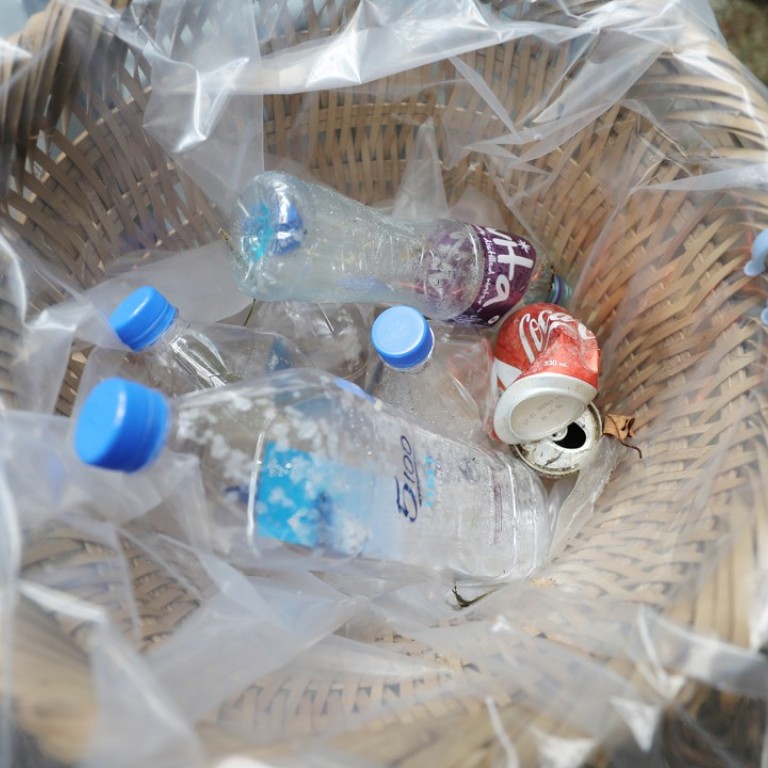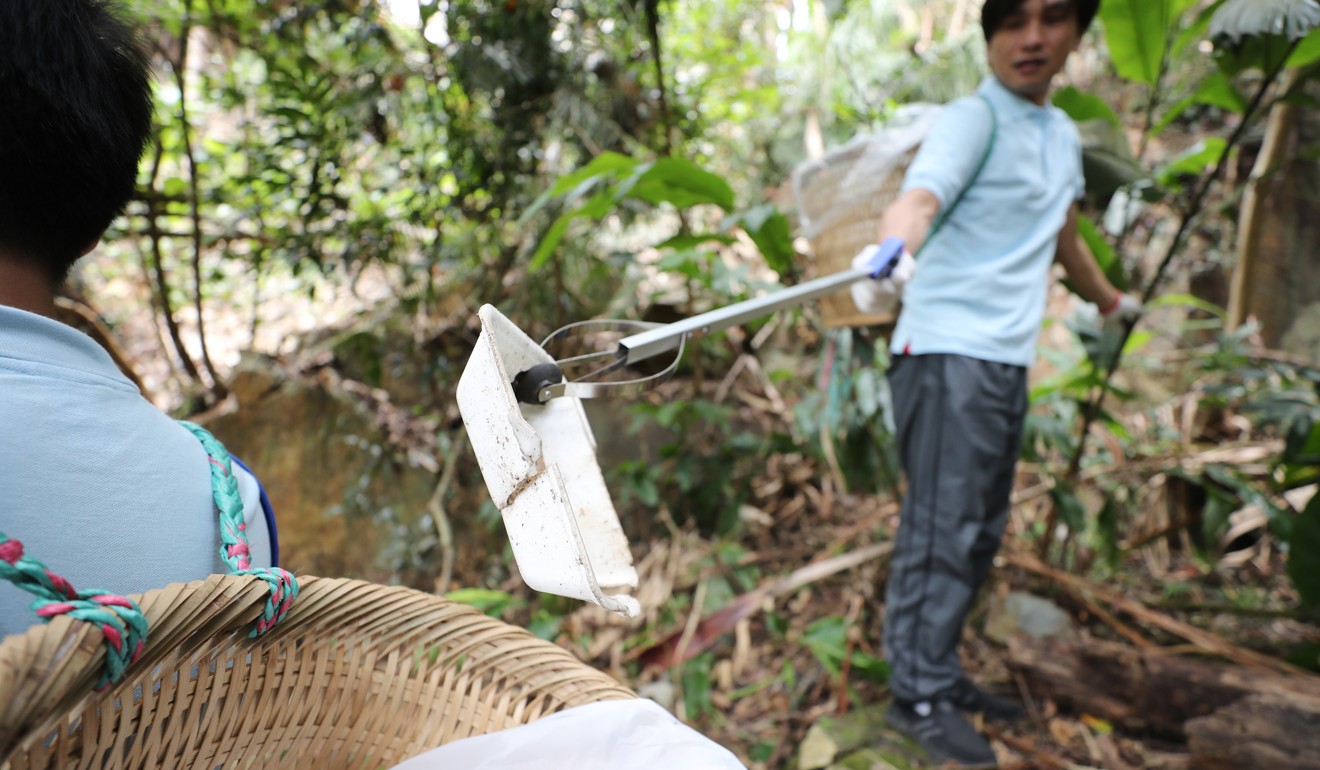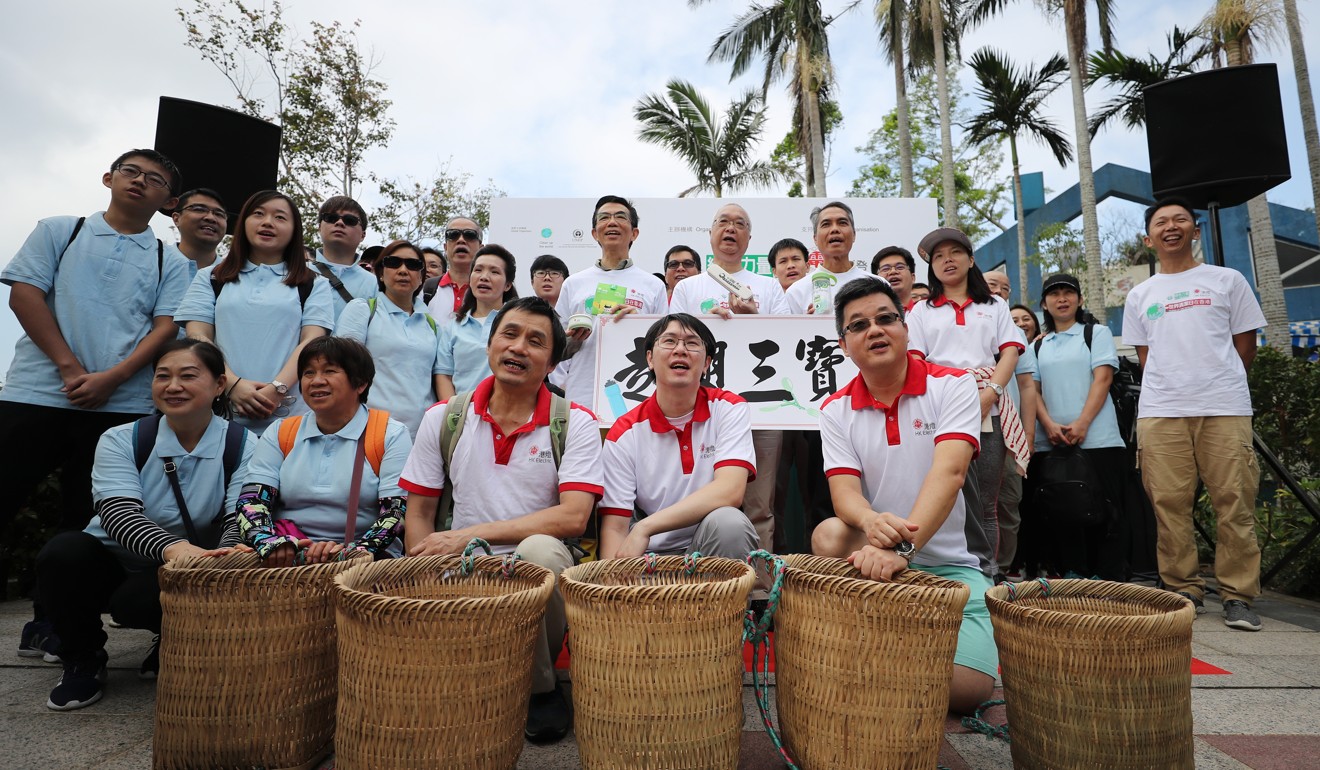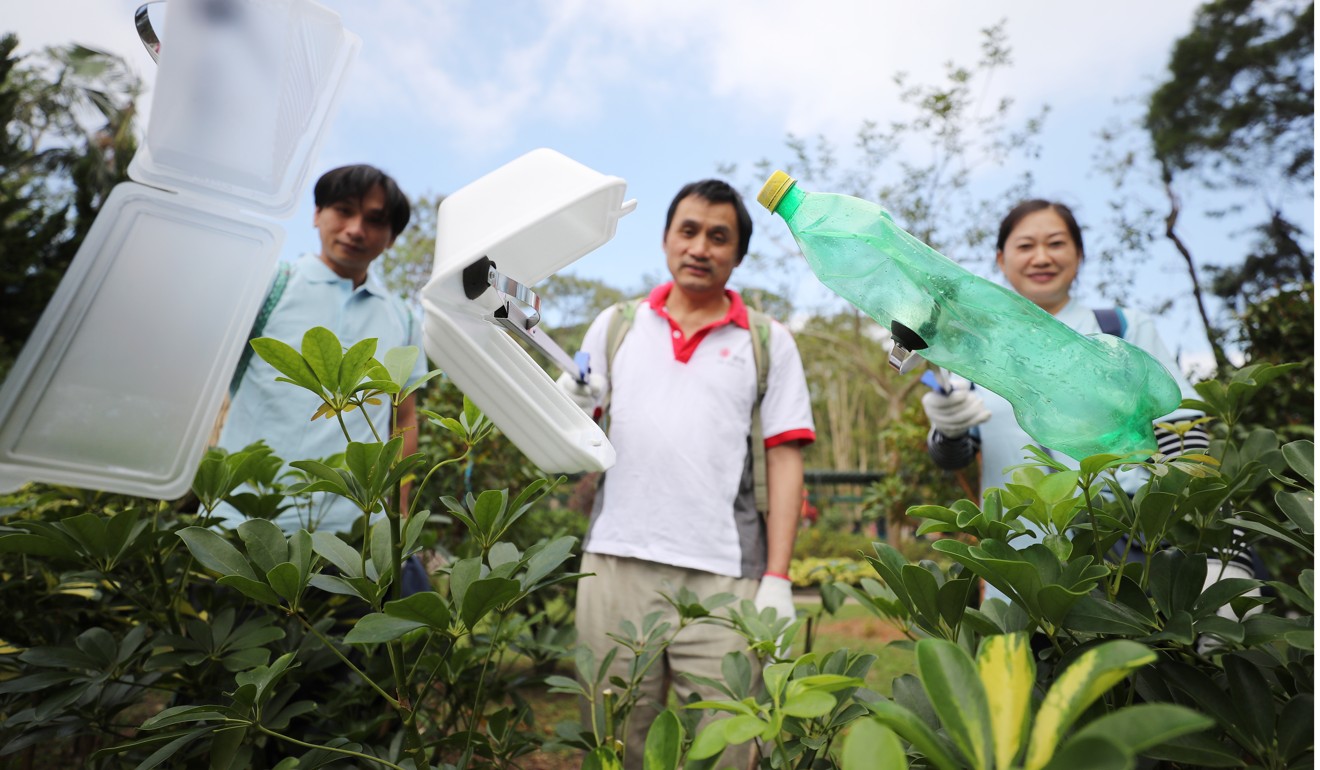
Hongkongers willing to forgo rubbish bins in countryside, but are not throwing away any less
- Study finds many support removal of trash cans from camping, barbecue and picnic sites
- Environmental group urges end to sales of plastic-bottled beverages, but kiosk owner attacks idea as ‘picking on the powerless’
Hongkongers are increasingly willing to have rubbish bins removed from recreational sites in the countryside, even though they are not throwing away any less at the city’s scenic spots, a study has found.
Support for doing away with trash cans at camping, barbecue and picnic sites ranged from 45 per cent to 75 per cent in three questions raised by an online survey carried out in September.
The figures marked increases of between 7 and 16 percentage points compared with last year.

The group urged officials to remove rubbish and recycling bins at some picnic spots to encourage Hongkongers to take their litter home.
Henry Lui Tak-hang, senior conservation manager, also suggested the government “actively consider” suspending sales of plastic-bottled beverages and disposable tableware at countryside kiosks.
However, he acknowledged that installation of more water fountains as a substitute was “rather difficult to implement in the short term”.
More than 17 million pieces of plastic waste flushed into sea via Shing Mun River
A kiosk owner inside Wan Chai Gap Park attacked the idea as “picking on powerless” salespeople, and said officials should instead target suppliers of plastic bottles.
Some 80 per cent of the survey respondents supported ending kiosk sales of plastic utensils, and 90 per cent for plastic-bottled beverages. Nearly 60 per cent said more water fountains should be installed.
Despite this, public habits in waste disposal had remained “generally the same” since the first edition of the survey three years ago, Lui said.

More than 70 per cent admitted they had generated waste during visits to the countryside, at an average of 2.2 pieces per person each trip. The most common items were used napkins, food packages and plastic bags. These three materials respectively accounted for 76, 72 and 53 per cent of total countryside waste.
“People’s mindsets have been changing, and they are becoming more willing to take their litter home,” Lui said. “But there has not been much difference in their actions.”
Mable Cheng, a civil servant hiking with a group of friends in Wan Chai Gap Park on Sunday, said she was all for the measures suggested by Green Power.
Carrie Lam takes one step forward on plastics, but two steps back with Lantau plan
“We always bring food and beverages in our own containers,” Cheng said.
“But it would be better if implementation could come gradually,” she added. “It took me some time to adapt when all rubbish and recycling bins along the hiking trails were removed at the end of last year.”
A couple surnamed Tsang and Liu, who have been managing a kiosk in the park for six years, disagreed with the idea of ending sales of plastic-bottled beverages and disposable utensils.

“Some 80 to 90 per cent of our daily revenue comes from selling bottled drinks,” Liu said.
Her husband said the kiosk was too small to prepare drinks for customers in their own containers.
“It would be very difficult for us to guarantee quality and hygiene,” he said.
“These ideas are merely picking on the powerless like us. It’s good to care for the environment, but the government must step up its supporting facilities to show it’s not just paying lip service.”
Tsang said more water fountains would be needed, and drinks bottlers would need leaning on to switch to more eco-friendly packaging.
Coke, Pepsi, Nestle are top creators of plastic pollution, says Greenpeace
“If the government can make the suppliers replace plastic bottles with glass, we would be totally fine with helping collect and carry them,” Tsang said.
Undersecretary for the Environment Tse Chin-wan said removing all rubbish bins on hiking trails had had a positive effect, and officials would consider further measures to reduce plastic waste.
About 154 tonnes of disposable plastic tableware – about 2 per cent of all municipal waste – went into Hong Kong’s overflowing landfills in 2016. Plastic accounts for roughly a fifth of daily trash.

